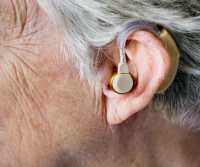MedicalResearch.com Interview with:
Cassandra L. Thiel, PhD
Assistant Professor
NYU Langone School of Medicine
Department of Population Health
NYU Wagner Graduate School of Public Service
NYU Tandon School of Engineering
MedicalResearch.com: What is the background for this study?
Response: Most healthcare professionals and researchers are aware that the healthcare sector makes up about 18% of the US Gross Domestic Product. What many do not realize is that all of that economic activity results in sizable resource consumption and environmental emissions. The healthcare industry is responsible for 10% of the US’s greenhouse gas (GHG) emissions and 9% of air pollutants.
1 Sustainability in healthcare is a developing field of research and practice, and my lab offers data and information by quantifying resource use and emissions of healthcare delivery. We started looking at cataract surgery a few years ago, in part because operating rooms (ORs) typically represent the largest portion of spending and garbage generation in a hospital.
2,3 Cataract surgeries are interesting because they are one of the most common surgeries performed in the world. In the US, we spend $6.8 billion on them each year. Any changes we can make to individual cases would have much larger, global impacts.
I studied cataract surgeries at a world-renowned, high-volume eye surgery center in India and helped validate that clinical care could be designed in a way that was effective, cost-efficient, and resource efficient. Compared to the same procedure in the UK, this surgery center generates only 5% of the carbon emissions (with the same outcomes).
2 This site’s standard policy is to multi-dose their eye drops, or use them on multiple patients until the bottle was empty. As such, the site generated very little waste.
Returning to the US, I observed cataract cases and heard the complaints of OR staff that they had to throw out many partially used or unused pharmaceuticals. In reviewing the literature, we could not find a study that quantified
how much we were throwing away and what it cost us to do so. We, therefore, set up a study to look at this particular issue.
(more…)

















